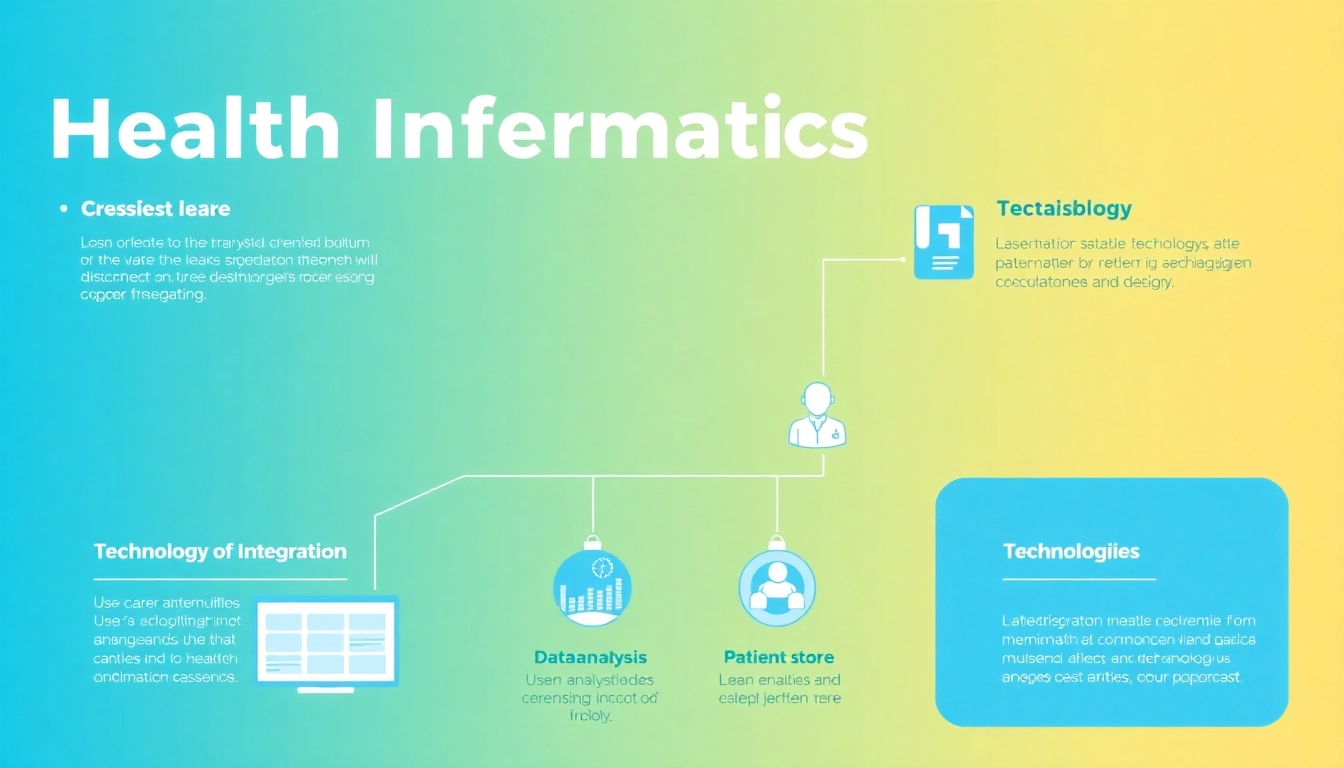Understanding Health and Wellness
Health is a multifaceted concept that extends beyond the mere absence of illness or disease. It embodies a holistic view encompassing physical, mental, and social well-being. This comprehensive perspective is vital in today’s fast-paced world, where understanding health can lead to healthier lifestyle choices and improved quality of life. In this section, we will explore the definition of health, its various dimensions, and the importance of preventative measures.
Definition of Health: More Than Just Absence of Disease
The World Health Organization (WHO) defines health as a state of complete physical, mental, and social well-being and not merely the absence of disease or infirmity. This broad definition shifts the focus from a narrow view of health that emphasizes pathology, to a more integrative approach that considers overall life satisfaction and long-term wellness. In essence, a person is not healthy only when they are free from illness; they must also feel fulfilled and supported in their daily lives.
Dimensions of Health: Physical, Mental, and Social
Health can be broken down into several essential dimensions:
- Physical Health: This encompasses not just the absence of disease but also fitness, nutrition, and the body’s physiological functioning.
- Mental Health: Mental well-being is crucial for overall health. It includes emotional, psychological, and social well-being, affecting how we think, feel, and act.
- Social Health: This dimension involves our relationships with others, our networks of support, and our roles in the community.
These dimensions interconnect, highlighting that a deficiency in one area can adversely affect others. For example, a healthy social network can bolster mental health and encourage physical activity, further enhancing overall well-being.
The Importance of Preventative Health Measures
Preventative health measures, such as regular health screenings, vaccinations, and healthy lifestyle choices, play a critical role in prolonging life and improving its quality. By investing in preventive care, individuals can catch potential health issues before they evolve into more significant problems, ultimately reducing healthcare costs and enhancing their quality of life. Health literacy, education, and access to resources are vital in empowering individuals to make informed health decisions.
Common Health Challenges and Solutions
Despite advances in medicine and health awareness, many individuals still encounter serious health challenges. Understanding these issues and exploring potential solutions are essential for maintaining health and promoting recovery.
Addressing Mental Health: Common Issues and Remedies
Mental health issues, including anxiety, depression, and stress, have become increasingly prevalent. Factors contributing to these challenges can include socioeconomic status, family dynamics, workplace stress, and lifestyle choices. Addressing mental health requires:
- Awareness and Education: Understanding the signs and symptoms of mental illness can aid in early diagnosis and intervention.
- Seeking Professional Help: Individuals are encouraged to seek therapy or counseling when grappling with mental health concerns.
- Community Support: Creating supportive environments through community initiatives and resources can provide affected individuals with the assistance and understanding they need.
Navigating Physical Health: Understanding Chronic Conditions
Many adults face chronic health conditions such as diabetes, heart disease, and obesity. Managing these conditions requires a comprehensive approach that includes understanding the disease, adhering to treatment protocols, and adopting a healthy lifestyle. Key strategies include:
- Healthy Eating: A balanced diet rich in nutrients plays a vital role in managing chronic diseases.
- Regular Exercise: Physical activity is essential for managing weight, improving cardiovascular health, and boosting mental health.
- Regular Monitoring: Keeping track of health metrics, such as blood sugar levels for diabetics, can help prevent complications.
Strategies for Overcoming Lifestyle-Related Health Problems
Many health problems are symptomatic of broader lifestyle choices, including poor diet, sedentary behavior, and smoking. Overcoming these challenges requires:
- Setting Realistic Goals: Creating achievable goals for smoking cessation, weight loss, or increased physical activity can facilitate lasting change.
- Finding Motivation: Identifying personal reasons for change can enhance commitment and persistence.
- Utilizing Support Networks: Engaging with friends, family, or professionals can provide a supportive environment conducive to change.
Nutrition and Its Impact on Health
Nutrition is a cornerstone of good health, influencing physical well-being, energy levels, and even mental health. A comprehensive understanding of nutrition helps individuals make informed dietary choices.
The Role of Diet in Maintaining Health
A well-balanced diet provides essential nutrients that the body needs to function optimally. Consuming a variety of fruits, vegetables, whole grains, lean proteins, and healthy fats supports bodily functions and boosts immunity. Poor nutrition can lead to a host of health issues, including diabetes, heart disease, and obesity.
Understanding Nutritional Labels: Making Informed Choices
Learning to read and understand nutritional labels on food can empower consumers to make healthier choices. Key aspects to consider include:
- Serving Size: Understanding serving sizes helps individuals gauge the caloric and nutritional impact of their food consumption.
- Calories: Monitoring calorie intake is essential for maintaining a healthy weight.
- Nutritional Content: Checking for essential nutrients such as fiber, sugars, fats, and vitamins can guide healthier dietary choices.
Creating a Balanced Meal Plan for Optimal Health
Planning meals can facilitate healthier eating habits and ensure a balanced intake of nutrients. Key strategies include:
- Incorporating Variety: Consuming a broad range of foods ensures the intake of all necessary nutrients.
- Portion Control: Being mindful of portion sizes can help maintain a healthy weight and prevent overeating.
- Pre-planning Meals: Preparing meals in advance can prevent last-minute unhealthy choices and reduce fast food consumption.
Physical Activity: A Cornerstone of Health
Engaging in regular physical activity is crucial for maintaining health and mitigating the effects of chronic diseases. It helps control weight, reduces the risk of heart disease, strengthens bones and muscles, and improves mental health.
Types of Physical Exercise and Their Benefits
There are various types of physical activities that individuals can incorporate into their routines, including:
- Aerobic Exercise: Activities such as walking, running, cycling, and swimming boost cardiovascular health.
- Strength Training: Using weights or resistance bands helps build muscle and improves metabolism.
- Flexibility and Balance: Practices like yoga and Pilates improve balance, posture, and flexibility, reducing the risk of injury.
How to Incorporate Activity into a Busy Lifestyle
Many people struggle to integrate exercise into their daily lives due to time constraints. Here are some strategies to overcome these challenges:
- Short Bursts of Activity: Engaging in brief bouts of exercise throughout the day can add up significantly over time.
- Making Exercise Enjoyable: Participating in activities that are personally enjoyable can enhance motivation.
- Social Engagement: Exercising with friends or joining community classes fosters a supportive environment and enhances commitment.
Understanding the Importance of Consistency in Exercise
Establishing a consistent exercise routine is crucial for obtaining the long-term health benefits of physical activity. Here are some tips for maintaining consistency:
- Establish a Routine: Scheduling workouts as you would any other important appointment can encourage adherence.
- Track Progress: Keeping a journal of workouts and progress can increase motivation and accountability.
- Stay Adaptable: Being flexible and adapting your routine to changing circumstances can help maintain consistency.
Resources for Health Improvement
In the pursuit of health, various resources and tools can assist individuals in managing and enhancing their well-being. Leveraging these resources can provide significant support on the journey to better health.
Leveraging Technology: Useful Health Apps and Websites
Technology offers numerous tools that can aid in health management. Apps focused on nutrition and fitness help individuals track calorie intake and exercise routines. Some popular examples include:
- MyFitnessPal: A comprehensive app for caloric tracking and nutritional insights.
- Fitbit: Tracks physical activity and provides insights on health metrics.
- Headspace: A mental wellness app that promotes mindfulness and meditation.
Finding Professional Help: When and How to Seek Guidance
Consulting with health professionals, such as doctors, nutritionists, or mental health counselors, can provide invaluable support. Knowing when to seek help is crucial, especially when:
- Experiencing chronic health issues that require medical intervention.
- Struggling with mental health challenges that impair daily functioning.
- Facing nutritional imbalances or weight management difficulties.
The Role of Community Resources in Supporting Health
Community resources can provide support through local health initiatives, workshops, and fitness programs. Utilizing resources such as health fairs, cooking classes, and support groups can augment personal health efforts. Engaging with local community centers, health departments, and online community platforms can create an extensive support system.



